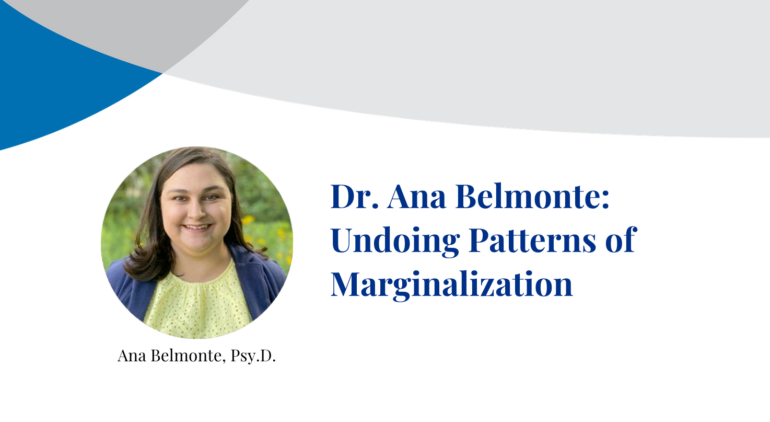“Criminal justice is in so many conversations these days, from public policy to activist movements to the media,” says Ana Belmonte, chair of The Chicago School’s Forensic Psychology program. “With all the increased interest in this field, it’s crucial that our students help bridge gaps in care and do so in ways that are respectful of the vulnerable populations forensic psychologists serve.”
Dr. Belmonte joined The Chicago School as a student in 2011, graduating with a Psy.D. in Clinical Forensic Psychology and continuing in faculty and leadership positions within the Forensic Psychology department.
“I got into this field because I wanted to understand why people behave the way that they do, and I wanted to play a role in helping build safer, stronger communities,” Dr. Belmonte says.
“I believe that my background as a graduate of our programs provides me with a unique perspective on the student experience and what students need to thrive here,” Dr. Belmonte says, adding, “It’s also pretty cool to count my former professors as my colleagues today. I am so glad I get to continue learning alongside them.”
For Dr. Belmonte, The Chicago School’s forensic psychology programs offer a unique experience for students by explicitly focusing on forensic concepts and ethics while also providing foundational expertise in the discipline of psychology.
“Very few programs offer our specific combination of a forensic focus and a pathway to licensure,” says Dr. Belmonte. “This really resonates with students because it sets them up so well for professional success once they graduate.”
Dr. Belmonte has worked with colleagues over the years to design an innovative curriculum that prepares students to be expert, culturally competent forensic practitioners. According to Dr. Belmonte, “We want students to graduate with an understanding of the gravity of working with vulnerable populations in the criminal justice system. These are folks who are often already marginalized in our communities, so it’s important for our students play a role in undoing some of this marginalization through respectful, ethical care.”
The university sees opportunities for continued growth in its forensic psychology programs, which currently enroll more than 600 students across the country. For Dr. Belmonte, the future vision is clear. “We’re going to continue to provide students with innovative, engaging experiences both inside and outside the classroom so that they feel fully prepared to reach their future professional goals,” she says. “In addition, we’re going to continue to offer top-notch support systems to our students so they feel cared for every step of the way here at The Chicago School.”

